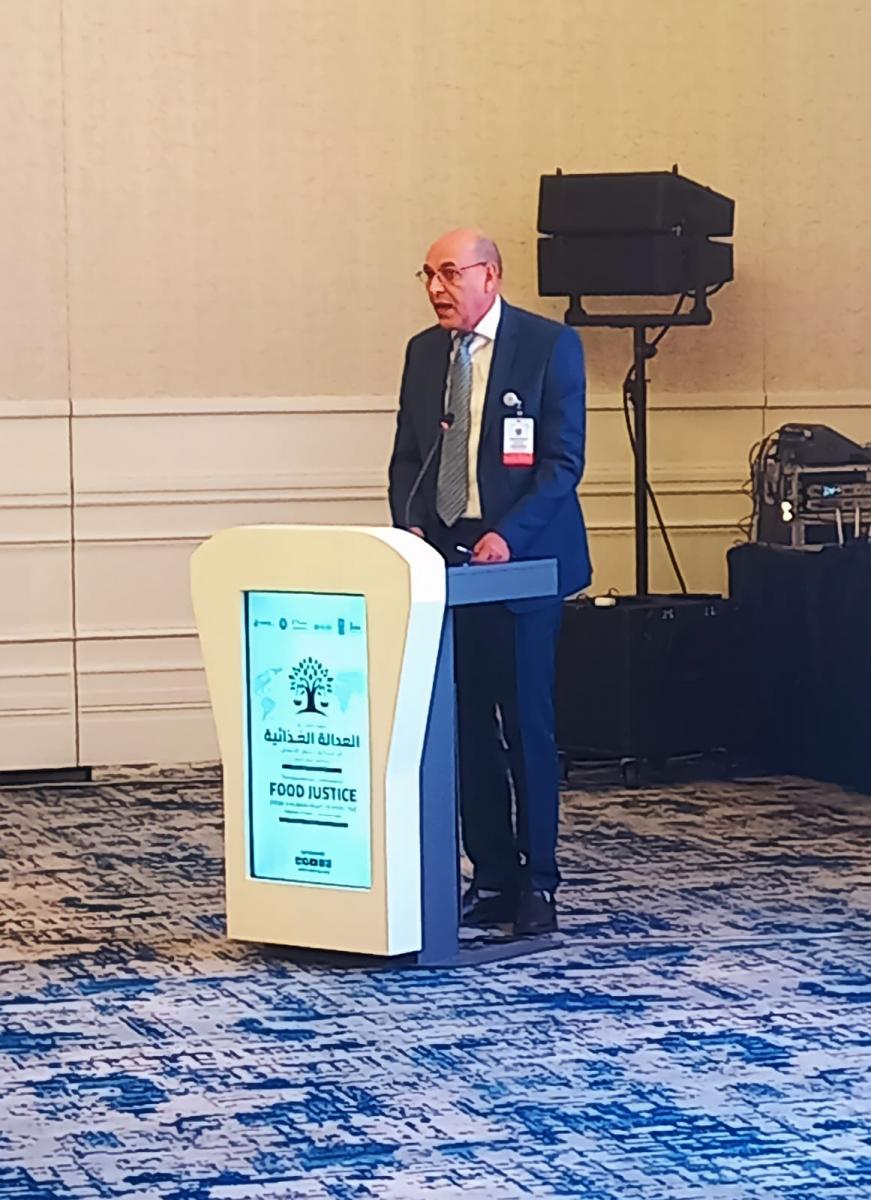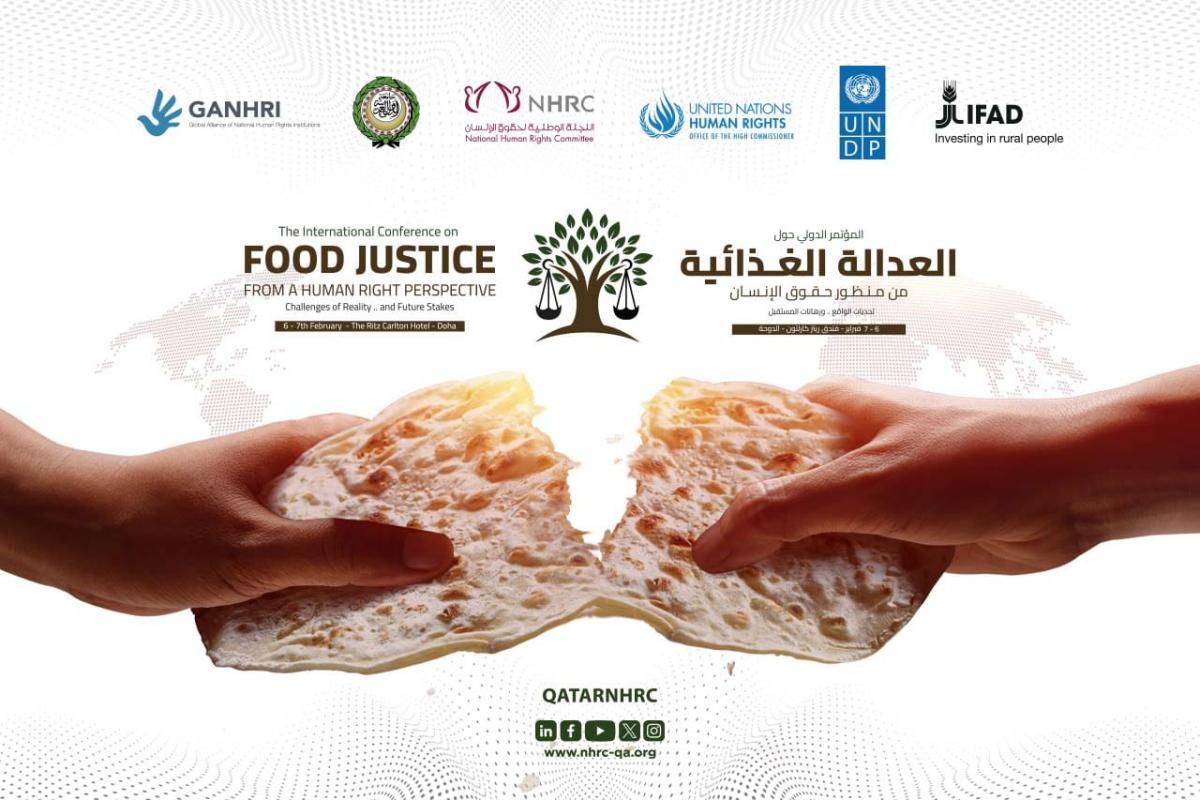International Conference in Qatar: CNDH shares its experience related to protecting food rights and ensuring food justice
The National Human Rights Council (CNDH) participated in the international conference on “Food Justice from a Human Rights Perspective, Challenges and Future Stakes,” which was organized by the National Human Rights Committee (NHRC) of Qatar on 6 and 7 February 2024, in cooperation with Global Alliance of National Human Rights Institutions (GANHRI), Food and Agriculture Organization of the United Nations (FAO), World Food Program (WFP), United Nations Development Programme (UNDP), United Nations High Commissioner for Human Rights (OHCHR), and Secretariat General of the League of Arab States.
At this conference, the CNDH emphasized the particular focus it places on protecting the right to food and ensuring food justice. Within this framework, the CNDH conducted several initiatives, developed reports, maintained consistent and methodical engagement with treaty bodies and paid particular consideration to not only the right to food but also related rights such as health, environment, and water.

The CNDH shed light on the significance of the right to food, considering it as both transversal and horizontal, given its intersection with other fundamental rights, such as the right to a healthy environment, protection from climate change, the right to water, and the right to health. The CNDH further highlighted that these rights are enshrined in both binding international instruments and non-binding ones, including the nine conventions that form the solid foundation of the international human rights system, all of which have been ratified by Morocco. The CNDH also underscored the role of this right within the hierarchy of Sustainable Development Goals (SDGs), particularly its relevance to the second goal. This goal advocates for eliminating hunger, achieving food security, improving nutrition, and fostering sustainable agriculture.

The CNDH highlighted its positive interaction with the United Nations Special Rapporteur on the right to food during her visit to Morocco in 2015. In her report, she welcomed Morocco’s achievements in reducing poverty and eliminating hunger.
Emphasizing its fruitful engagement with various international mechanisms, the CNDH stressed the need to implement its recommendations related to the right to food for vulnerable groups, including prisoners, persons with mental illnesses, domestic workers and women. The CNDH also noted the importance of improving the quality of food provided to persons deprived of liberty and including information related to providing food in the employment contract model for domestic workers.
The CNDH also recommended the strict implementation of the Family Code provisions related to alimony issues, among others. Additionally, the CNDH contributes to the amendment and review of the code through the development of a comprehensive memorandum. Furthermore, the CNDH called for an in-depth discussion on the effects of climate change on the right to food.

In recognition of the parallelism and complementarity between food justice and spatial justice, the CNDH has been supporting and advocating for the protection of the spatial rights of residents in areas that have not benefited from development opportunities, within the framework of Morocco’s advanced regionalization choice. In the same context, the CNDH is following up on the implementation of the social initiatives launched by Morocco regarding mainstreaming social protection. The four pillars of this initiative include providing fundamental health coverage for every citizen, offering direct social assistance to vulnerable families, extending retirement benefits, and approving comprehensive compensation for job loss.






















